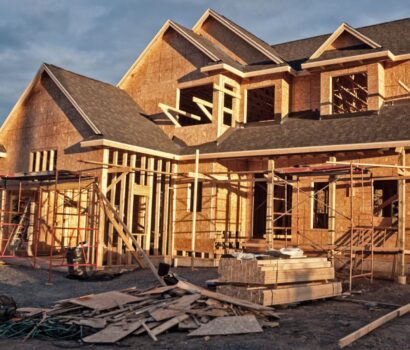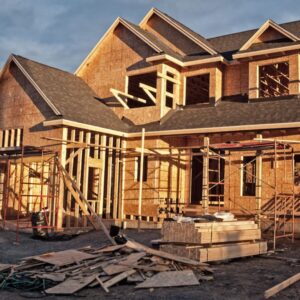Shielding homeowners from defects in a newly constructed property
New build home warranties are insurance policies that shield homeowners from defects in a newly constructed property. Unlike traditional home insurance, which is the homeowner’s responsibility, the developer takes out these warranties to assure homeowners that any issues will be promptly resolved. Typically, these warranties span a period of ten years from the completion of your new build home purchase.
The warranties primarily cover two areas: defects for two years and structural issues for ten years. The first category includes problems like leaky windows due to improper sealing, faulty plumbing or electrical wiring. If any such defect is identified during this period, the developer is required to rectify it.
Serious structural problems
On the other hand, the ten-year coverage looks after structural issues, covering defects related to the home’s load-bearing elements. However, only serious structural problems are included, such as issues with the roof, load-bearing walls and foundations of the property. The warranties also protect your deposit if your developer goes out of business after you’ve made a down payment but before your home is complete.
Things that new build warranties don’t cover include defects that occur after the first two years, minor structural issues not caused by substandard building work, damp or condensation issues not attributed to the builders, natural wear and tear, damage due to adverse weather conditions, and issues resulting from failing to maintain your property.
Developers offer varying warranties
Different developers offer varying warranties. Therefore, it’s crucial to check what’s covered. The National House-Building Council is the main provider of new build warranties, accounting for approximately 70% to 80% of the market. Other schemes include LABC Warranty.
All these schemes are members of the Consumer Code for Home Builders. While the coverage is broadly similar across all, it’s advisable to read the policy to understand exactly what is and isn’t covered. The differences between different warranties often boil down to the insurer underwriting the policy.
Swiftly address any potential issues
When it comes to claiming on your new build warranty, swiftly addressing any potential issues is key. If you notice a problem that you suspect falls under the scope of your warranty, don’t delay reporting it. Any worsening of the issue due to delayed reporting may render it ineligible for warranty coverage.
Defects should be reported to your developer during the initial two years following purchase. They must have reasonable time and access to your property to resolve the issue. To safeguard yourself against potential future disputes, maintaining a record of all communications with your developer is highly advised.
Complimentary dispute resolution process
Structural issue claims should be directed to your new-build warranty provider for properties over two years. This approach changes from the initial two-year period when the developer is primarily responsible.
If your developer is failing to address reported issues appropriately or their response is unsatisfactory, you can escalate your concerns to your warranty provider. Organisations such as the National House-Building Council typically offer a complimentary dispute resolution process.
New build warranty isn’t tied to your builder
If your warranty provider’s response is less than satisfactory, your next port of call is the Financial Ombudsman Service. As new home warranties are technically insurance products, they fall within the jurisdiction of this ombudsman service.
Your new build warranty isn’t tied to your builder. Hence, it remains unaffected if they go out of business. However, if your warranty insurer goes bust, another insurer might take over the warranties, albeit likely at an additional cost to you. You may also receive some compensation from the Financial Services Compensation Scheme, though the amount is not substantial.
New build warranty stays with the property
A new build warranty stays with the property, irrespective of ownership changes. Hence, if you purchase a property under ten years old, you will still benefit from the warranty coverage. Ensure you receive the policy details and certificate from the seller’s solicitor. However, remember that the warranty won’t cover any work the previous owner carried out on the home.
Navigating the ins and outs of new build home warranties can be complex. But worry not; our team is ready to assist you with any questions or concerns you may have. We’re committed to ensuring you have the necessary protection and guidance for your property investment. We’ll help you understand the details of your warranty, provide advice tailored to your specific needs and ensure you’re well-equipped to make informed decisions about your property.
Looking for professional advice on navigating the mortgage process?
Feeling overwhelmed is common when navigating the mortgage process, but it doesn’t need to be this way. With professional guidance and expert advice, we can assist you in securing a mortgage that is right for your needs. For more information, please contact the team.
Please note: a mortgage is secured against your home or property. Your home or property may be repossessed if you do not keep up repayments on your mortgage or any other debt secured on it.







